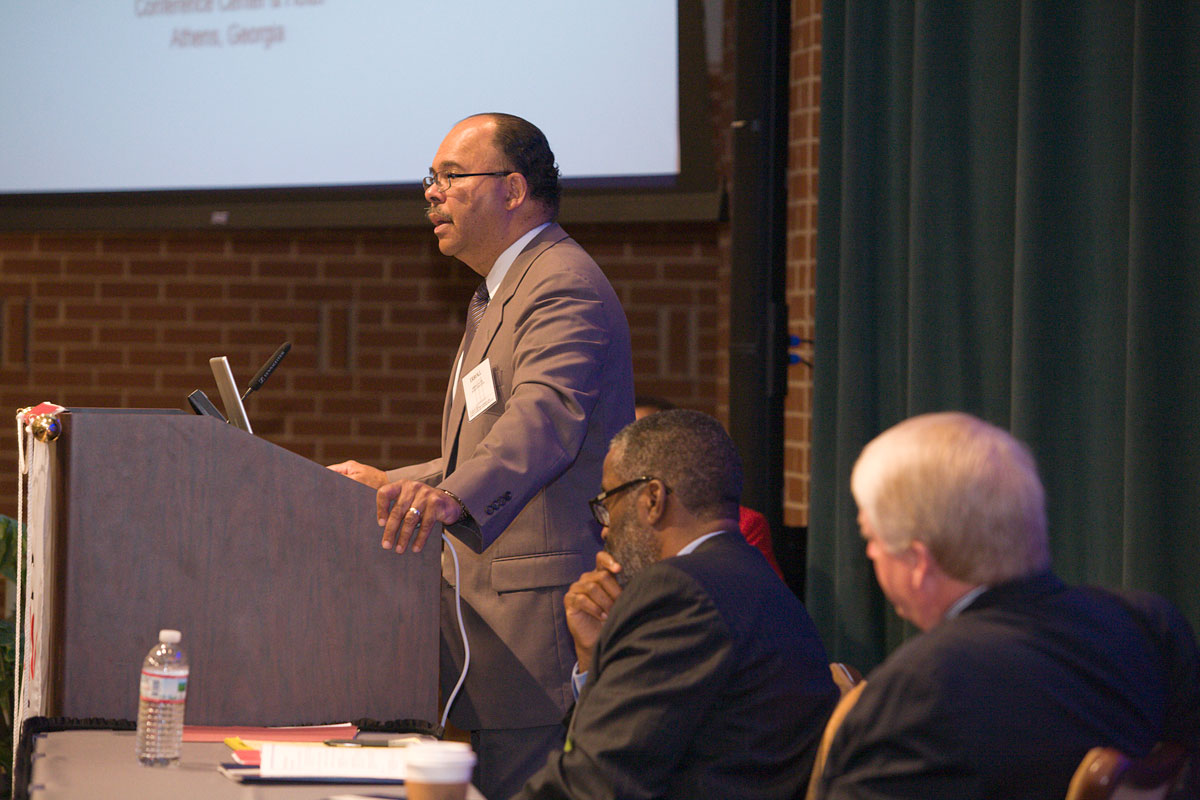Last month, UGA hosted the first-ever University System of Georgia Diversity Summit, a conference that brought representatives from all 35 USG institutions and other Georgia organizations together to share ideas about inclusion and help construct system-wide policies.
“What you will address here is one of the most important topics not only facing the USG but the state of Georgia,” UGA President Michael F. Adams told participants. “Diversity impacts education. It especially impacts access to education. It affects our efforts to build a 21st century workforce. Diversity impacts our state’s efforts in economic development. I’ve seen all of those first-hand, but more important, from where I stand, is that working toward diversity and inclusion is simply the right thing to do. Once you get people to agree on that, then the succeeding implementation discussions become a lot easier.”
Work done at the conference, which was augmented by scholars from the University of California, Los Angeles, the Carl Vinson Institute of Government and the Office of the General Counsel of the U.S. Department of Education, will be used to create and modify inclusion policies for USG institutions and the system itself.
“We will take the findings from this conference and incorporate them into our efforts at the system level because a commitment to diversity is also a commitment to listening,” USG Chancellor Erroll B. Davis Jr. told the group. “It’s a commitment to listening to different viewpoints about how we should change and how we should become more inclusive.”
He added: “As we broaden the diversity of our campuses, we’re certainly going to see the strengthening of our system. The challenge we face at our institutions is how to employ strategies that make diverse people and viewpoints welcome, and how to do this in environments that encourage inclusion and change.”
Cheryl Dozier, UGA’s associate provost for institutional diversity, chaired the planning committee for the two-day conference, which also included Agnes Scott College, Spelman College, Atlanta Public Schools and Fort Gordon.
The event’s keynote speakers, UCLA professors Walter Allen and Sylvia Hurtado, shared their research about campus diversity programs and their outcomes. To collect information, the pair sifted through volumes of published research about campus inclusion efforts across the nation since 1985.
“What we found was that it’s not enough to just increase diversity in terms of the numbers of people. That’s an important first step, but it’s not enough,” Hurtado said. “When you talk about real integration, you’re talking about how people are interacting on a daily basis. If they don’t interact, you don’t see the benefits of diversity.”
And those benefits are real. Students who interact with people who are different from themselves tend to be more accepting of others and more civically engaged, both during college and in the years following, she said.
“Competencies for a multicultural world are needed now them more than ever,” she said. “The world is small now. It’s flat. As a result, we’re all going to have to stretch ourselves to interact with different people.”
The pair plans to continue their research, now with the aid of some Georgia institutions, with the ultimate goal of producing tools to help institutions of higher education retain diverse students, faculty and staff.


